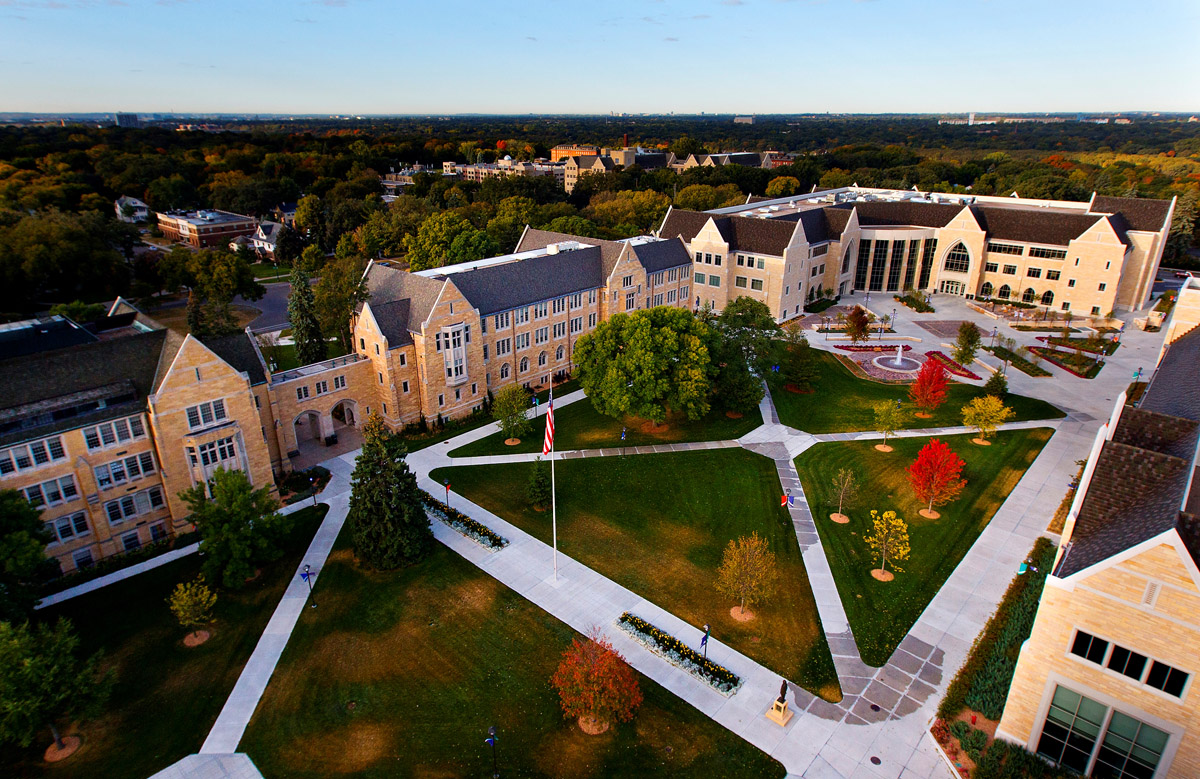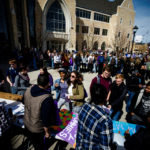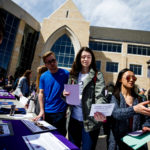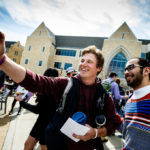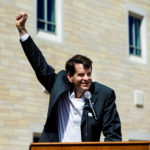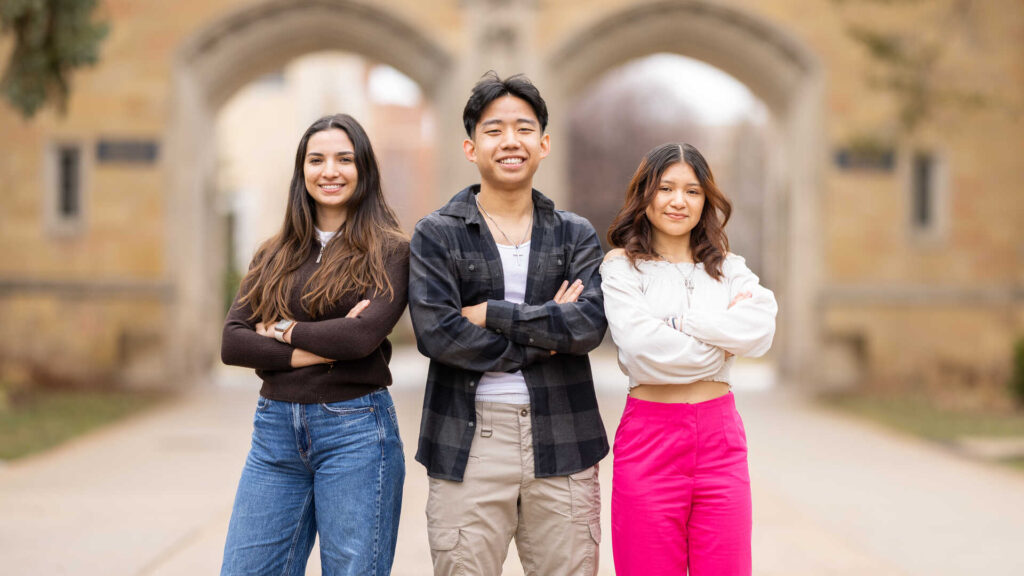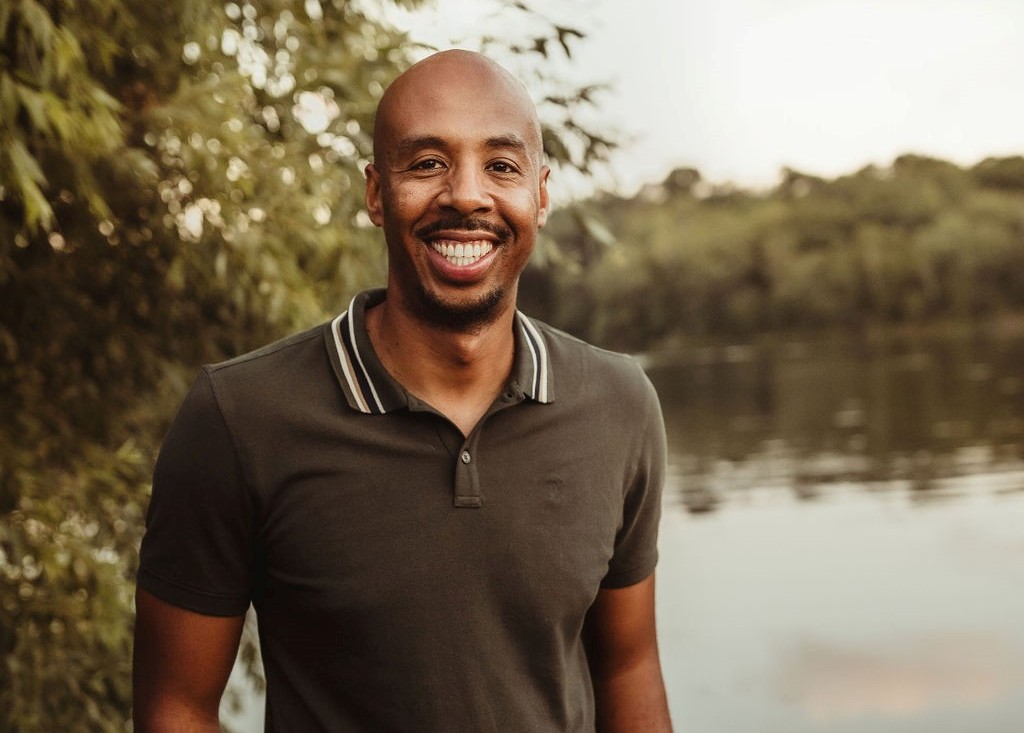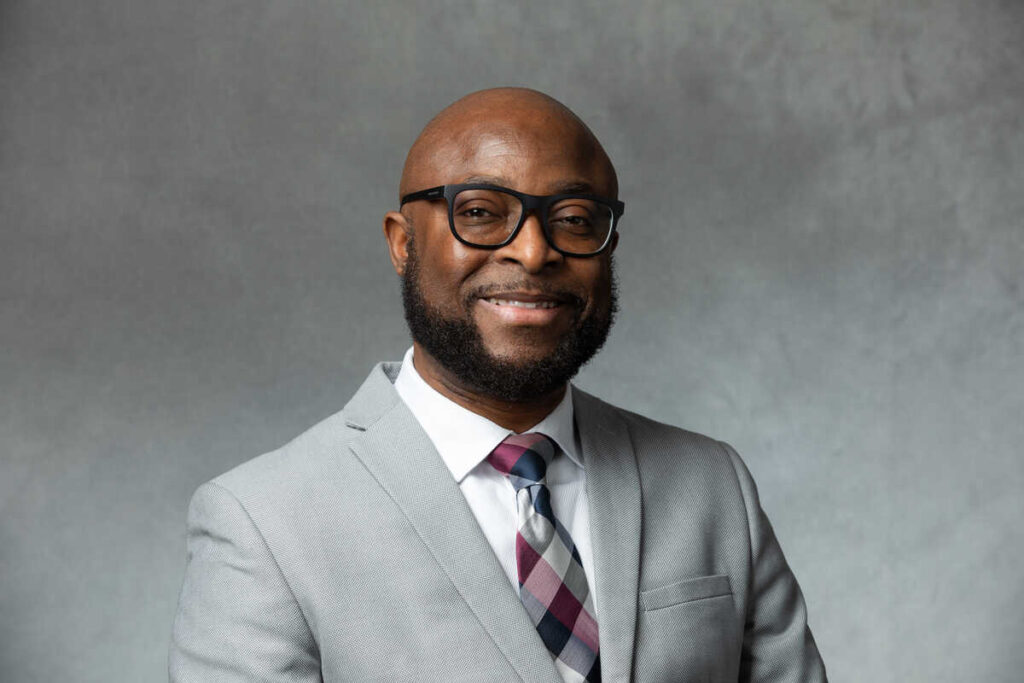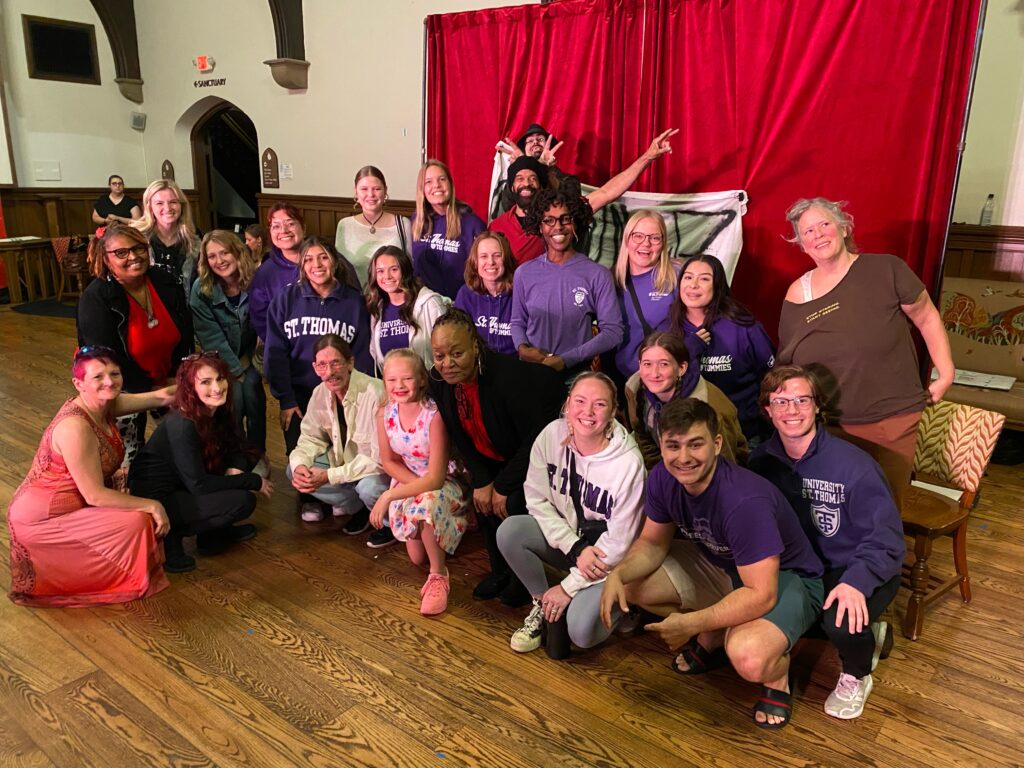In a rapidly changing world, university students seek solution-oriented learning experiences; they want to make a difference in the world and begin to solve complex social problems. Students want to become “changemakers” – people who are empowered to help find lasting solutions to social and environmental problems.
Now, the University of St. Thomas has received the distinctive honor of being named a Changemaker Campus by Ashoka U, a global consortium working to inspire a culture of social innovation in higher education. St. Thomas becomes the first in Minnesota and the 40th Changemaker Campus in the consortium, which includes Arizona State University, Boston College, Brown University, Duke, Marquette, Monterrey Tec in Mexico and Singapore Management University.
A Changemaker Showcase event and celebration at noon today outside the Anderson Student Center (or inside Dorsey Way in the case of poor weather) will kick off a year of changemaking to celebrate the designation.
“By designating St. Thomas as a Changemaker Campus, Ashoka U recognizes our deep commitment to creating an educational environment in which all can collaborate to create a more equitable and sustainable world,” said University of St. Thomas President Julie Sullivan. “It also recognizes the university’s innovative social entrepreneurship education and research across disciplines.”
A direct outcome of the Strategic Plan, St. Thomas 2020, the Ashoka designation matches perfectly with university's mission to create morally responsible leaders who think critically, act wisely and work skillfully to advance the common good. By engaging all the university's stakeholders and giving students more resources to learn about social innovation and then actively do social innovation, St. Thomas' changemaking focus as part of Ashoka will help create exciting, engaging educational opportunities for all current and future Tommies.
Today’s students’ expectations from their educational experiences are changing: 72 percent say that having a job “where I can make a difference” is very important and 65 percent expect to make a social or environmental impact through their work, according to a 2012 Net Impact study conducted by Rutgers University and supported by the MacArthur Foundation.
"The needs of society are changing very rapidly, including the educational needs," Sullivan said. "We have the opportunity to have the flexibility, the adaptability to anticipate those needs, to develop new programs to really be leading and preparing people."
“The educational goals of students are changing,” said Marina Kim, Ashoka U’s co-founder and executive director. “These student demands add a new dimension to the call for innovation in higher education: How can colleges and universities foster the knowledge, skills and dispositions that equip graduates to address increasingly complex global challenges? Every student should get the chance to acquire the skills necessary to make a difference in the world.”
Ashoka recognized St. Thomas for creating a culture of changemaking, which is built on a long tradition of social innovation and entrepreneurship at the university. They noted St. Thomas’ commitment to service through volunteer activities and extensive class partnerships with community organizations. They cited efforts in the Opus College of Business to spawn and support social ventures such as Love Your Melon, an apparel brand that donates half its profits to pediatric cancer research. They also pointed to St. Thomas’ unique interdisciplinary offerings such as Peace Engineering, a collaboration between the School of Engineering and the Department of Justice and Peace Studies in the College of Arts and Sciences.
Other key changemaking initiatives at St. Thomas increase educational access and enhance collaboration. Ashoka praised St. Thomas’ commitment to reducing the educational opportunity gap by launching the Dougherty Family College, which will provide mentorship and other support to help low-income students thrive in college. St. Thomas’ leadership in interfaith cooperation also drew particular attention, including its programs that engage people of all faiths on and off campus.
As part of the selection process, Ashoka was briefed on many of the programs and resources St. Thomas already has in place, among others, that position it as a changemaking leader:
- The Makerspace, which provides 3-D printers, laser cutters, sewing machines, and space for lectures and collaborative programming.
- Tommies Together Volunteer Center, which coordinates co-curricular opportunities for volunteer and advocacy work.
- Business 200, the service-learning program required for all undergraduate business majors.
- St. Thomas E-Learning and Research (STELAR) center, which provides equipment and training for technology-enhanced instruction.
- Sustainable Communities Partnership program, which pairs courses with environmental projects identified by local municipalities.
- Living-Learning Communities, which connect a cohort of students to shared curricular and co-curricular activities organized around a theme.
- Educating for the Future Strategic Planning Task Force, which is working to revise the undergrad curriculum.
- Study abroad programs and the great capacity for global changemaking.
- Alignment across the strategic plan.
- A social entrepreneurship focus across both undergrad and graduate programs, already seen in many existing service-learning programs.
- New educational opportunities for underserved communities, particularly with Dougherty Family College, collaboration with Cristo Rey Jesuit High School and ThreeSixty Journalism.
- Interprofessional Center for Counseling and Legal Services (IPC), which provides clinical training opportunities for graduate psychology, social work and law students.
- Brightside Produce, a financially sustainable model for delivering produce to underserved neighborhood corner stores.
- Cleantech Open Midwest, the new business incubator program in the Schulze School of Entrepreneurship.
This designation is only the beginning of a process to help students find meaning while working to create a more just and equitable world.
“Being a Changemaker Campus will open doors to significant, long-term partnerships with global institutions and within our own community,” said Adam Kay, St. Thomas director of social innovation. “We look forward to the increased opportunities for our students, faculty and staff to help solve some of the really tough social challenges we are facing.”
